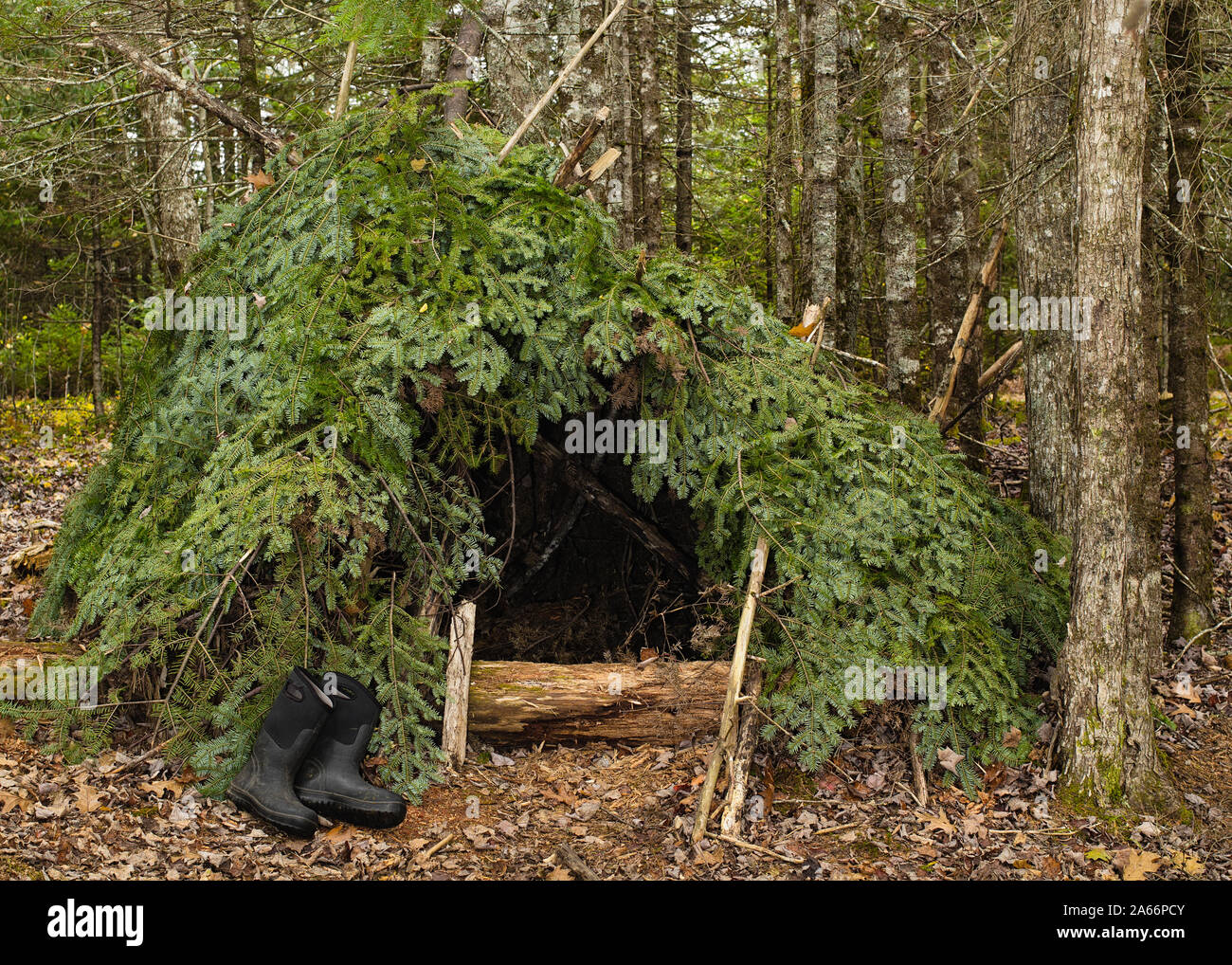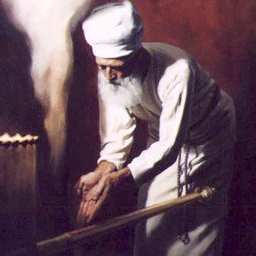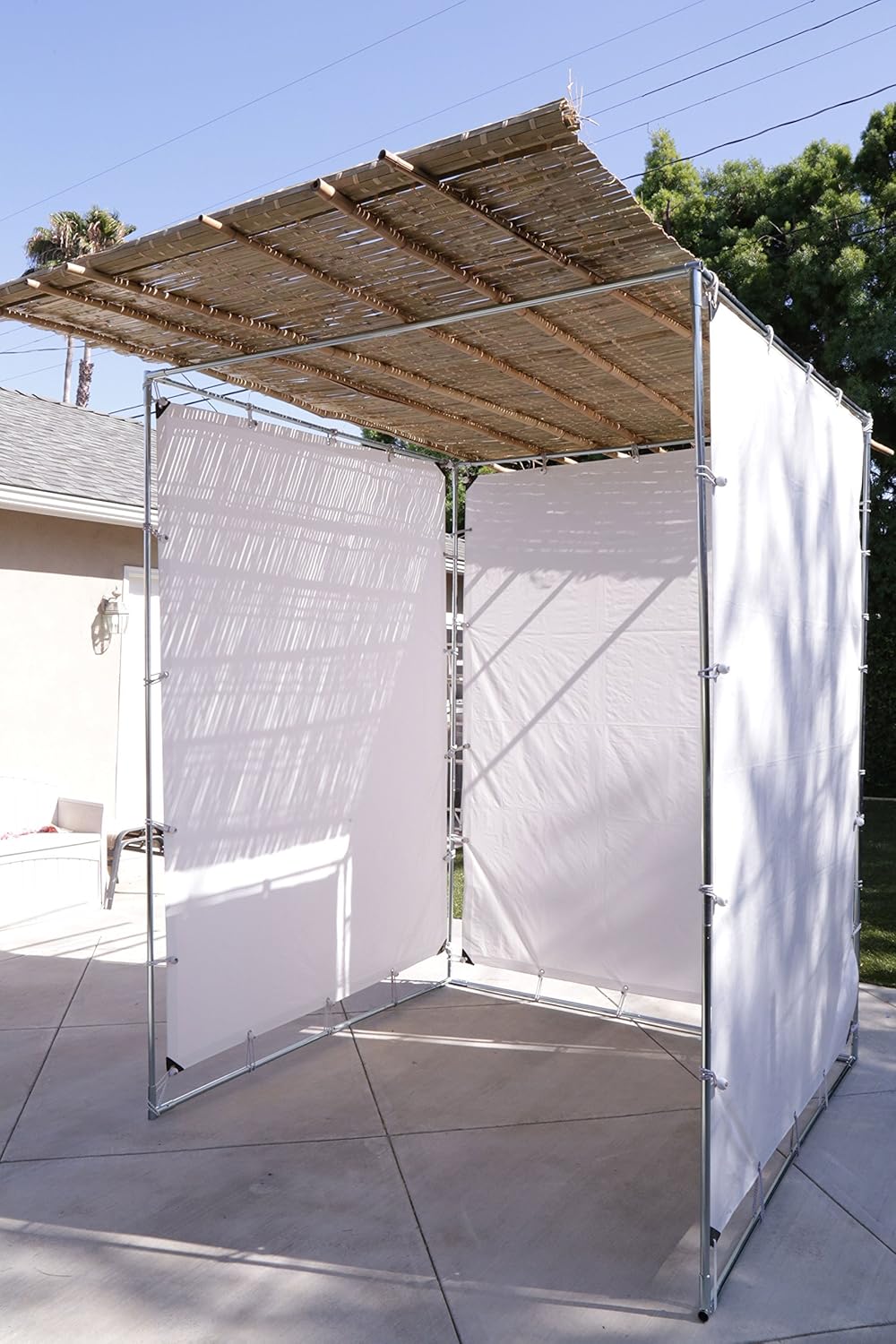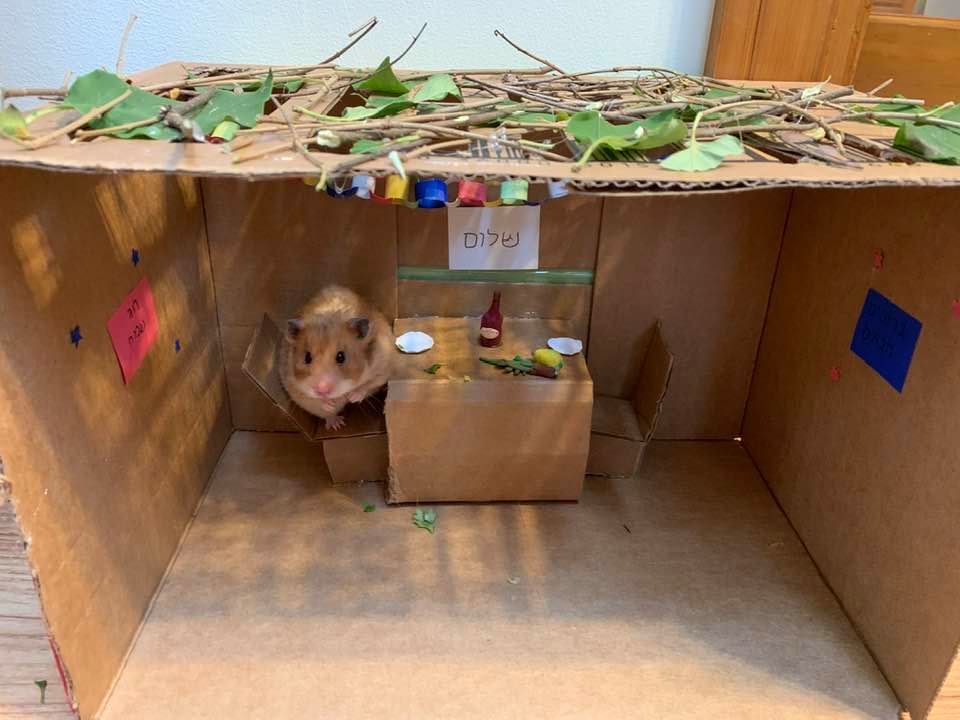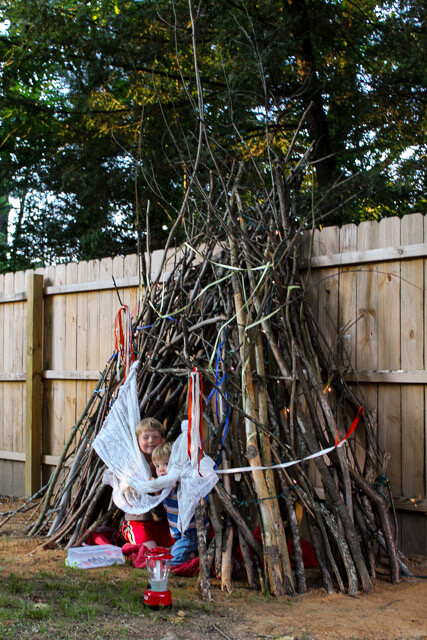BS’D
Suka 19b – 20a
Iyar 15, 5781. April 27, 2021
1- We continued the Sugya of מחצלת.
The basis is as follows:
If it was made to use as a mat, it turns it into a כלי and is מקבל טומאה. That makes it not Kosher Schach.
If it is made for a shade, wallpaper, or a cover, it does not become a כלי and therefore Kosher to use as Schach.
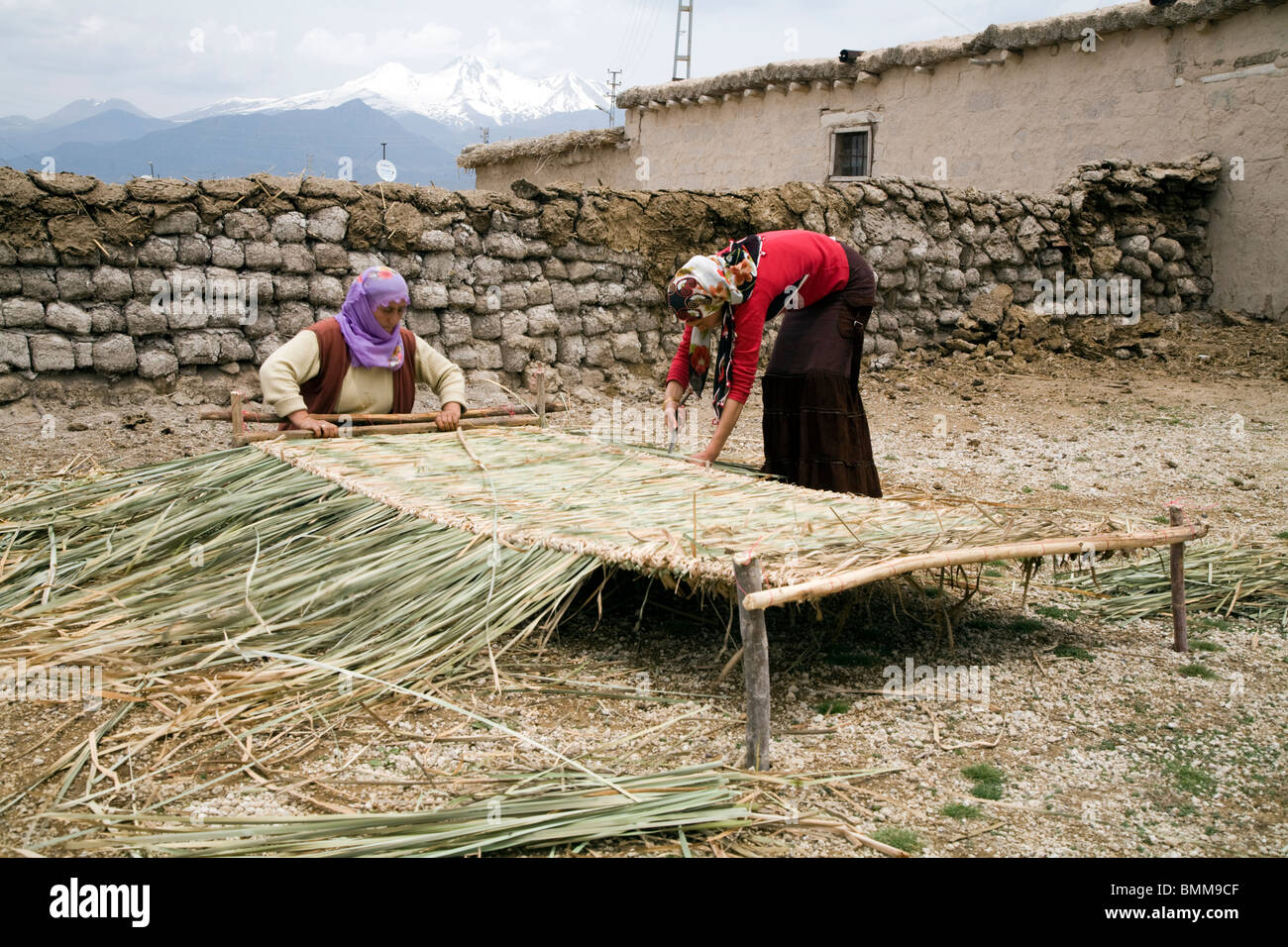
2- The way Tosfos Rid learns our Mishna and Gemara, the designation is established by the purchaser. Since the manufacturer makes it generic, or neutral, it is up to the purchaser to decide what he bought for. Mat or סכך.
However, if he was ‘blank’ or undecided at the time of purchase, that is the מחלוקת between the חכמים who follow the size, and Reb Eliezer who does not.

3- The way the Rosh learns the Gemara: The designation is decided by the מנהג, meaning what the majority of people in a particular locality use these מחצלות for. If the common use of these מחצלות are used as mats, then even if one makes one specifically for סכך, it would be invalid since people would see one use it and not know that he created one specifically for סכך.
If there is no מנהג, we follow the size. If it’s just a bit larger than the height of a person then we assume that it was made for a mat. However, if it large, then we can assume that it was made for a cover and thus Kosher for סכך.
The Halacha is like the Rosh. We discussed the need for a Hechsher on these מחצלות.
See here from the OK.
Interesting idea by Rabbi Don Yoel Levy OBM.
In addition, while visiting the factory, I had the owner write up a sign, in Chinese, (to be hung up in the factory) stating that the mats being produced now are made for shade and religious purposes. To ensure that the sign stated exactly what I requested, I took a copy of the sign and showed it to various Chinese-speaking people, from hotel personnel to airline passengers on the plane ride back from the facility, and asked them to please translate the sign. It was indeed written as I requested.
3- We came across an interesting expression in our Gemara.
And Reish Lakish follows his line of reasoning stated elsewhere, as Reish Lakish said: I am the atonement for Rabbi Ḥiyya and his sons, as initially, when some of the Torah laws were forgotten from the Jewish people in Eretz Yisrael, Ezra ascended from Babylonia and reestablished the forgotten laws. Parts of the Torah were again forgotten in Eretz Yisrael, and Hillel the Babylonian ascended and reestablished the forgotten sections. When parts of the Torah were again forgotten in Eretz Yisrael, Rabbi Ḥiyya and his sons ascended and reestablished the forgotten sections. This expression of deference toward Rabbi Ḥiyya introduces the halakha that Reish Lakish is citing in his name. And so said Rabbi Ḥiyya and his sons: Rabbi Dosa and the Rabbis did not disagree concerning the soft mats of Usha,
We will Bl”n discuss this piece next week. What we managed to talk about was what Reish Lokesh added to the name of Reb Chiya when mentioning him.
I am the atonement for Rabbi Ḥiyya and his sons
What is the meaning of this expression? The commentaries explain as follows: Every human being, even the most greatest of צדיקים must pass thru the ‘גיהנום’ ! Whatever that means, we know that there it is associated with a certain measure of pain prior to entering גן עדן.
Therefore, a descendant accepts upon himself this pain/atonement as a substitute for his parents.
עלי יבוא כל רע הראוי לבוא על נפשו – רש”י קידושין לא, ב
That is the Halachah in שלחן ערוך. that one needs to say this for 12 months after one’s parents passed away. YD 249 9.
See the Taz there (9) why קדיש said for 11 months and הריני כפרת משכבו is said or written for a full year.
4- We discussed the weird question asked to the Berszhaner Rov, Reb Sholom Mordechai Schwadron.

Can someone sell one’s עבירות? Is such a sale valid?
One of the sources he quotes is our Gemara where by saying הריני כפרת משכבו one accepts and transfers the pain that was designated to a parent ontu oneself.

See here. 151.
We discussed Chodosh in modern times, – the story of the Baal Shem Tov who said that for the Bach– R’ Yoel Sirks, father in law of the Taz – they cooled Gehinnom forty days:
ולחם וקלי וכרמל לא תאכלו עד עצם היום הזה וגו’. הבעל שם טוב שאל בחלומו על חדש בזמן הזה, איך הדין, וענו אותו, שלאחר פטירת הב”ח ציננו את הגיהנם ארבעים יום, מחמת שהיה צריך זה לכבוד הב”ח, ובבוקר עמד הבעש”ט זלה”ה ושלח להביא שכר מן החדש ושתהו, ואמר כדאי הב”ח שמתיר כדי לסמוך עליו:
(זכרון טוב די”ב ע”ד).
To be continued Bl”n.
